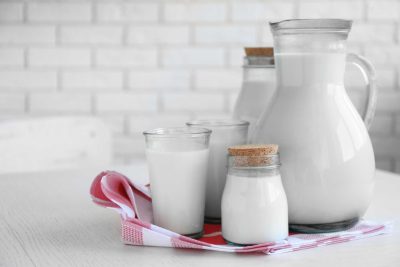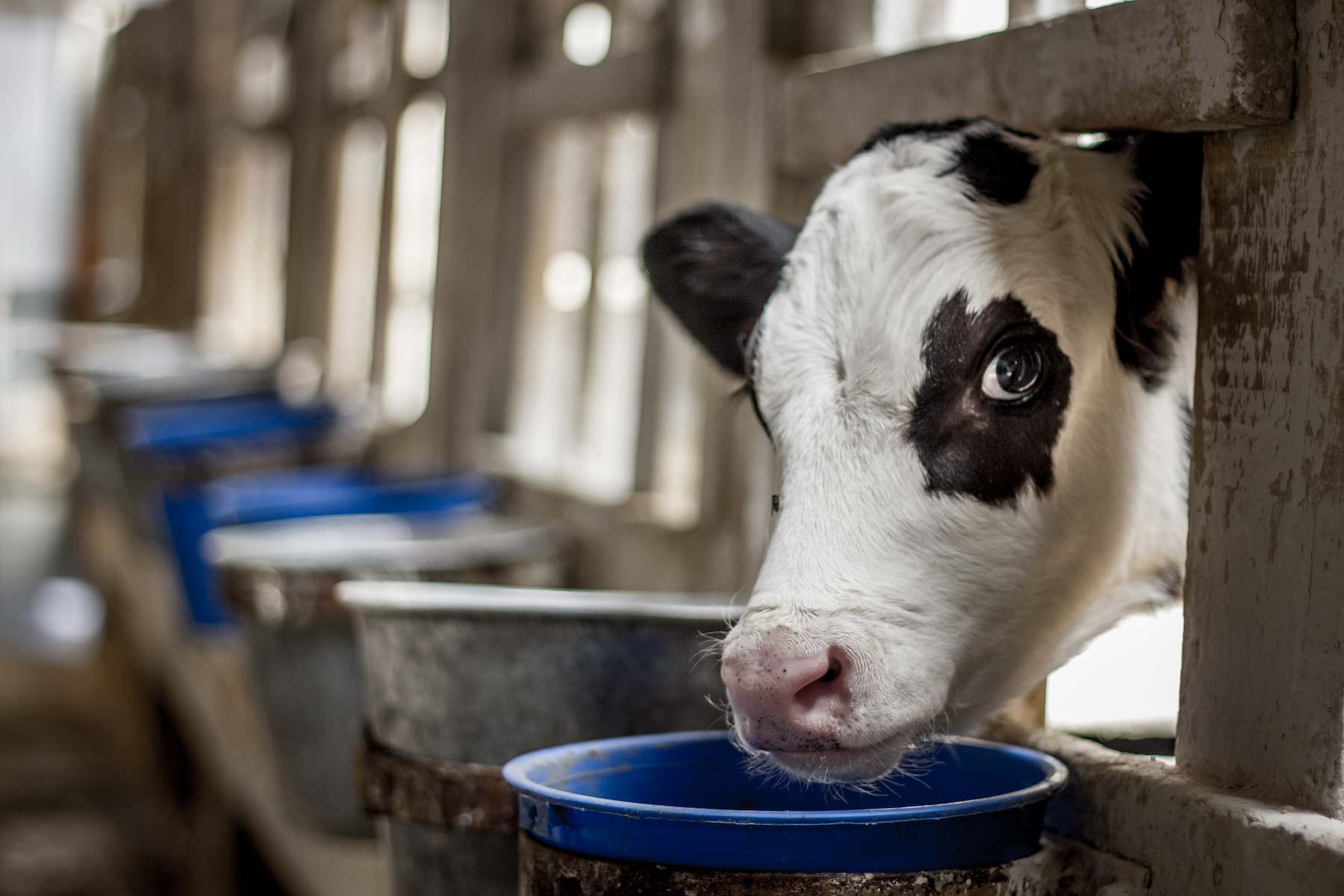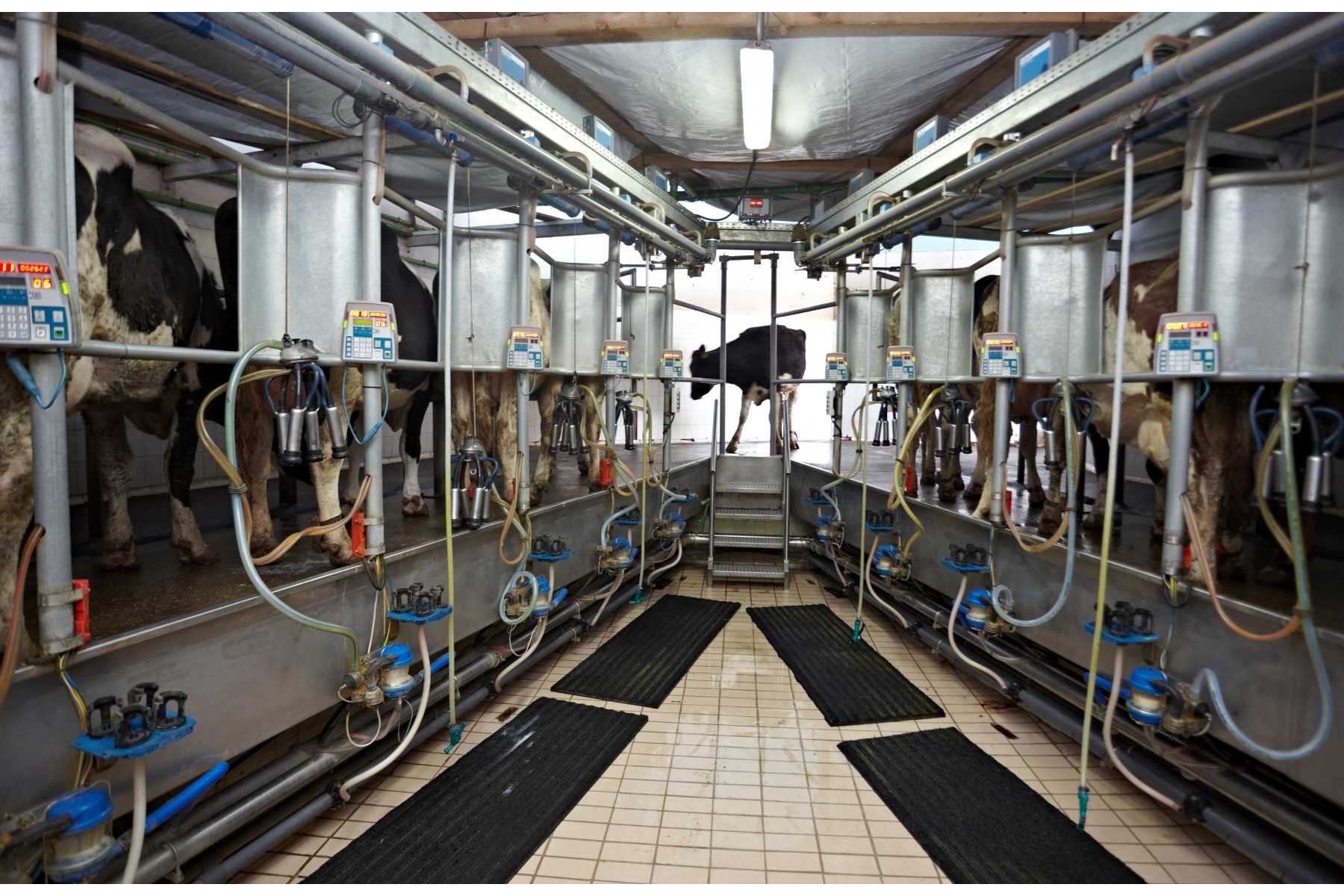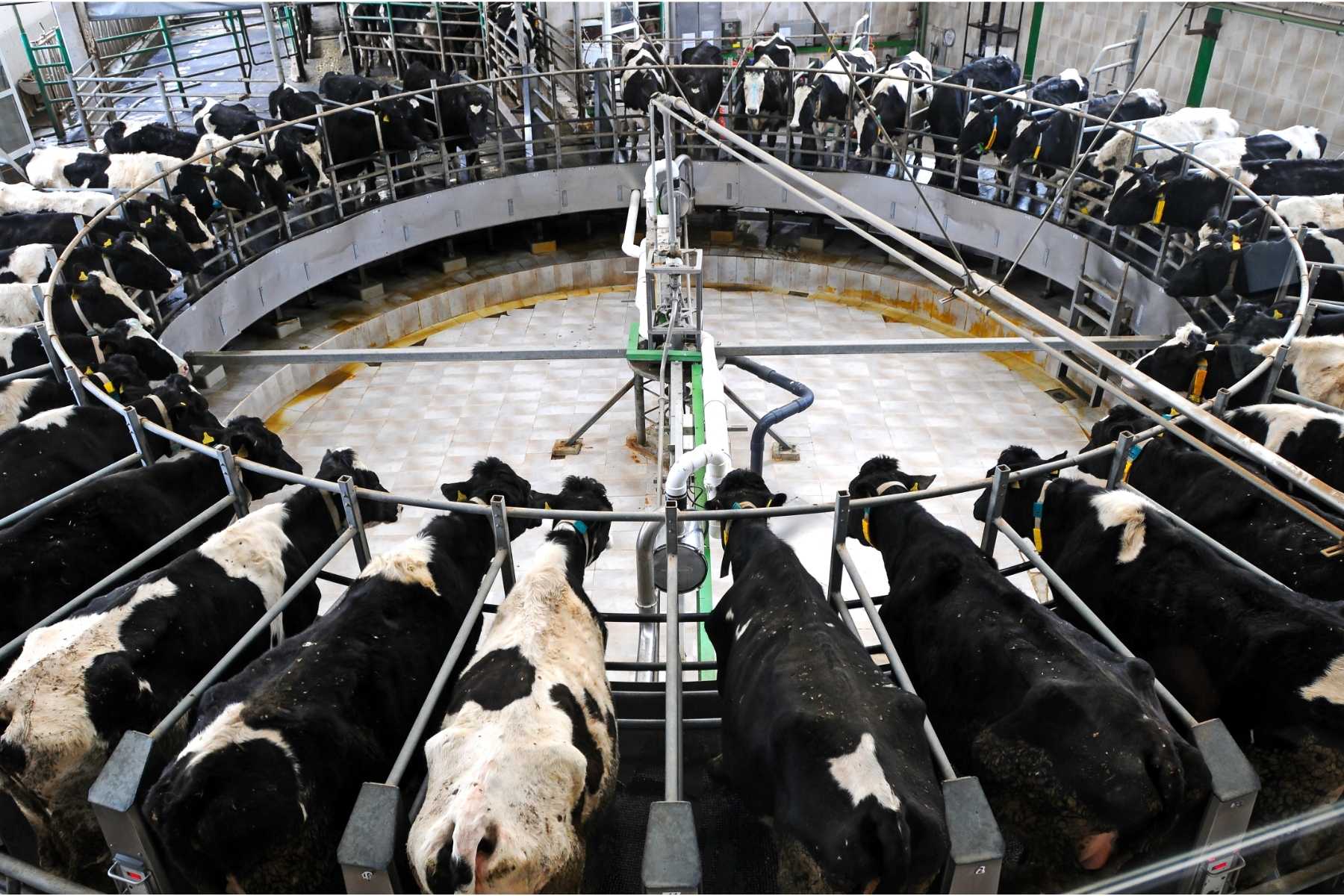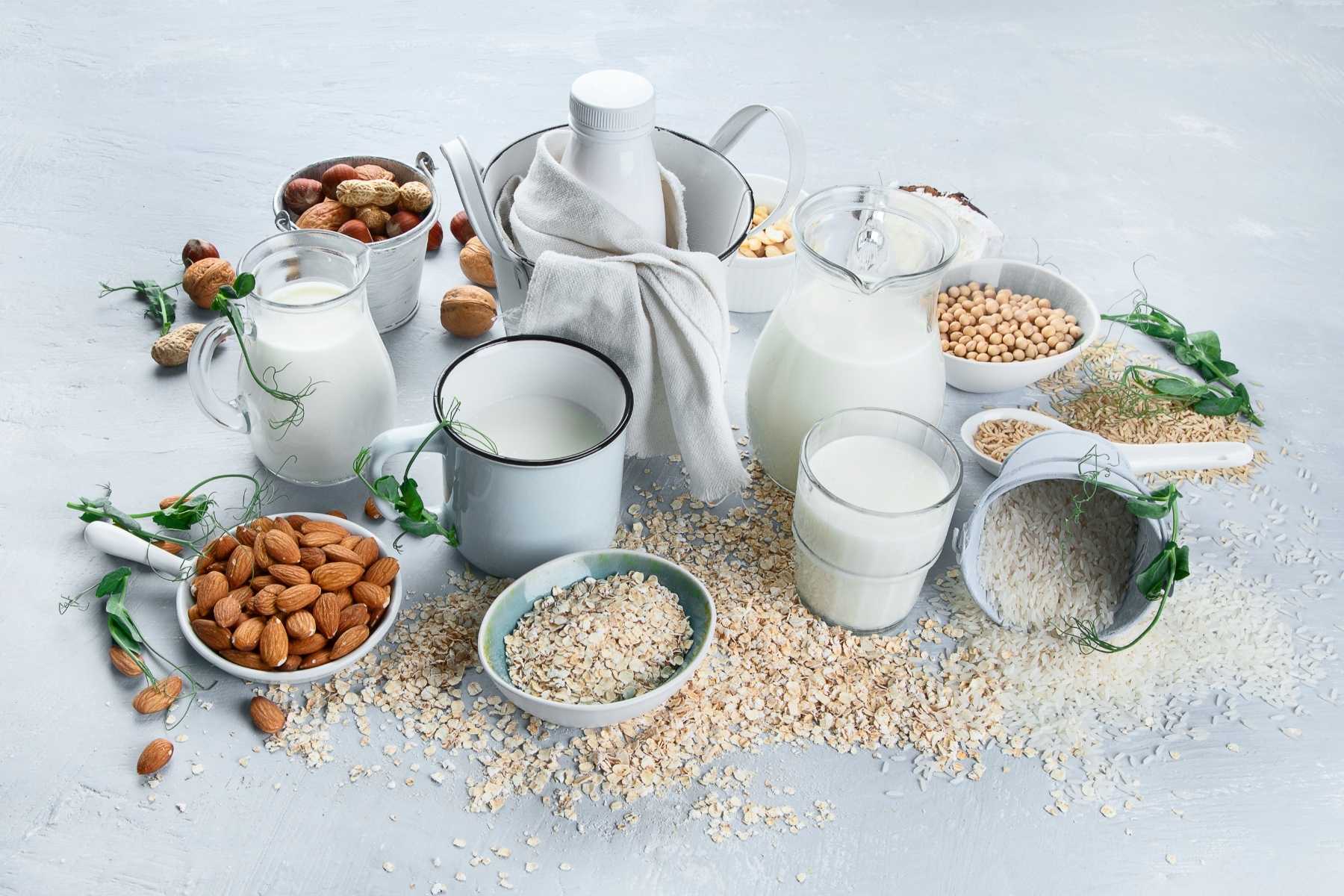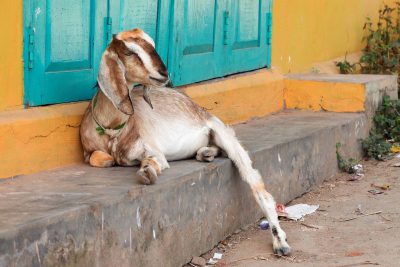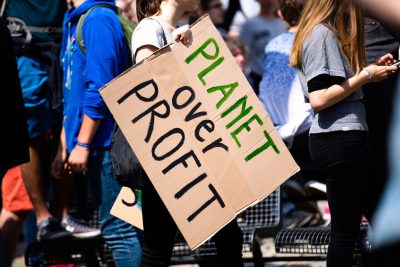For the animals, for your health, for the planet … here are the top ten reasons to ditch dairy and embrace plant-based milk for good.
1. Babies Stolen from Mothers
Cows don’t just give milk with a turn of the faucet. Like all mammals, they make milk when pregnant specifically to feed their young. But the milk is valuable and so not even a drop is spared for the calf for whom it was made. To stop the young from drinking it, the industry takes them from their mothers. It’s a devastating separation for both, and although they may call and call for one another for days, they never see each other again.
2. Calves Kept Sick and Isolated
The calves are little more than a by-product, but the dairy trade doesn’t miss an opportunity to make more profit where it can. And so, it raises the babies for veal. These young animals may be chained alone in hutches and kept deliberately weak and anemic. They will be slaughtered for their pale flesh when still so young.
3. Mothers Sent to Slaughterhouses
The dairy industry keeps the mothers almost constantly pregnant in order to keep their milk flowing. For much of their lives they will be both pregnant and milked, while often kept in miserable conditions, and fed the bare minimum needed to keep them productive. The physical and emotional toll is so vast that most cows break down before they are six years old. There is no happy retirement for them, no chance to roam and graze. When money can no longer be made from their reproductive abilities, the industry trucks them to a slaughterhouse, where one last profit can be made from their worn-out bodies. These moms may still be pregnant when slaughtered.
4. The Milk is Infected
Mastitis is a painful infection of the udders that is endemic in dairy herds. The disease is so rife that somatic cells called ‘neutrophils’ end up in the milk that people drink. These are the white blood cells that are the body’s ‘first responders,’ swarming to the site of an infection, in this case the udders. Neutrophils are the primary component of pus, and Dr Michael Greger worked out that in each cup of milk there is likely to be one drop of pus. In Europe, a somatic cell count of 400,000 per ml milk is deemed unfit for human consumption; in the US, the legal limit is 750,000.
5. Dairy Makes Most People Sick
If you ever experience bloating, flatulence, diarrhea, stomach cramps, or nausea after eating, there is a chance you are not able to digest the sugar in milk. This should come as no surprise. Humans are the only animals to drink milk long after we’ve been weaned, and it’s not even the milk of our own species! Ninety-five percent of Asians, 60 to 80 percent of African Americans and Ashkenazi Jews, 80 to 100 percent of Native Americans and 50 to 80 percent of American Hispanics are lactose intolerant and would do well to avoid dairy altogether.
6. It’s the Main Source of Saturated Fat
According to the Physicians Committee for Responsible Medicine, “milk and other dairy products are the top source of saturated fat in the American diet, contributing to heart disease, type 2 diabetes, and Alzheimer’s disease.” So, even if you are able to digest it, dairy can have a long-term debilitating effect on our lives and can lead to premature death.
7. Dairy is Linked to Cancer
Research has linked the consumption of dairy to breast and prostate cancer. One study funded by the National Cancer Institute, the National Institutes of Health, and the World Cancer Research Fund, found that women who consumed one-quarter to one-third of a cup of cows’ milk per day had a 30% increased risk of breast cancer. One cup per day increased the risk by 50%, and 2-3 cups were associated with an 80% increased chance of breast cancer. The researchers warned: “Current guidelines for dairy milk consumption could be viewed with some caution.”
8. The Dairy Trade Pollutes Our Waters
There are one billion cows on the planet and they all poop. A lot. Twenty-four billion tons of dairy manure is produced every year in the USA. That waste gets into the earth and into the waters where it causes serious pollution. One 2019 study of the global impact of dairy said: “Dairy cattle, and other livestock, have a major impact on water use and availability, water quality, hydrology and the health of aquatic ecosystems…. Major sources of water pollution from dairy farms include animal wastes, pharmaceutical residues (e.g., antibiotics and hormones), fertilizers and pesticides used for growing feed crops, and sediment from eroded pastures.”
9. Dairy is a Leading Cause of Climate Breakdown
Cows are the number one agricultural source of greenhouse gases worldwide. Methane is 28 times more potent in warming the atmosphere than carbon dioxide and every year, each cow belches around 220 pounds of methane out. When you consider land use, farm practices, processing and transport, the four worst foods for the climate have been found to be beef, lamb and mutton, cheese, and the meat of dairy cows.
10. Plant Milk Tastes Better
It just does. In fact, many people say that after a break from consuming dairy, they find it tastes awful, and rancid. Give your tastebuds a break and try some of the many plant milks – such as oat, soy, almond and cashew – that are better for you, the planet and all its inhabitants. Nothing tastes better than that.
